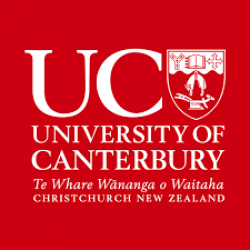
Assisting the formation of inclusive engineering cohorts
Status
Completed: 1 December 2021
Project Details
A three-year project commencing in 2018, undertaken by the University of Canterbury, that investigated the effect of creating an inclusive cohort environment in engineering undergraduate education on student retention.
Aims:
The main aims of the project were to:
- improve student retention rates
- create an inclusive atmosphere within the student cohort
- place particular emphasis on creating an inclusive atmosphere for minority groups, such as women, LGBTQ and ethnic minorities.
Methodology:
The project's methodology included:
- a focused review of the literature
- interviews/survey questionnaires with staff and students
- adaptation of the successful ADVANCE programme, followed by an evaluation of the implementation through focus groups and surveys.
Team

Professor Philippa A. Martin
Project Leader
University of Canterbury
Dr Anne K. Soutter
University of Canterbury
Associate Professor Erik Brogt
University of CanterburyStatus
Funding
$27,280.00 (excl GST)
Key Findings
The preliminary findings from the project include:
- Trial orientation sessions including a primer on effective inclusive cohorts has been completed.
- Impact on practice – the product design team now want to develop an orientation programme for their students. Already it is clear that this will be a regular way to start the academic year.
- Impact on learners – there has been a much quicker cohort formation and students have been much bolder in approaching staff. It broke down barriers between students and between staff and students.
- Impact on team – insights were gained into team dynamics as they played out during the orientation. These insights were shared with students during the event.
- Other highlights or challenges – the project now needs to look at follow up activities/touch points to further upskill students on working in diverse teams and managing team conflicts in an inclusive and professional manner.
Key Recommendations
Review / Climate Check – Important to provide barrier-free access to education for all learners.
- A first step is to identify existing barriers.
- Reviews or climate-checks need to be done regularly.
- Set the tone for the culture and learning environment on the first day/week ( see Resource Guide).
- Address the case of benign neglect and work to assist students to achieve shared knowing i.e. Use of names, team bonding exercises, encourage student-to-student interaction.
- Staff need to model inclusive language and use respectful communication.
- Organise social events.
- Address stereotype threat and create an identity-safe environment ( a range of ideas to tackle stereotype threat are provided).
- Provide facilities i.e. spaces where Māori knowledge is valued, provide internet, computer labs, study spaces, libraries.
- Important to incorporate te Reo Māori and tikanga Māori into the learning environment. Use diverse examples in class.
- Focus on creating cooperative learning groups by teaching, modelling as well as enforcing positive and enriching collaborative work experiences. Teamwork skills need to be taught.
- Enable students to engage with someone or have experiences in the career they are studying.
- Important to integrate tikanga Māori into the programme and whānau and community connections in particular.
- Provide opportunities for the appointment and development of Māori staff as well as provision of training in diversity and inclusion.
A resource guide for educators that presents a range of ideas which could be employed to tackle stereotype threat and create an identity-safe environment for learners.
- 30 November 2021
This resource guide outlines ways course leaders, directors and coordinators can ensure that a student cohort develops to be supportive, constructive and inclusive to all.
- 30 November 2021
This resource guide outlines ways teaching staff can ensure that a student cohort develops to be supportive, constructive and inclusive to all.
- 30 November 2021
This resource guide outlines some simple things teaching staff can do at the start of a course to make people feel welcome and to foster a sense of belonging.
- 30 November 2021